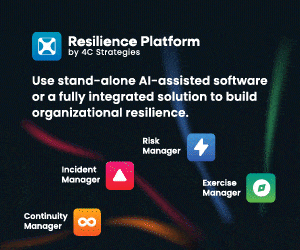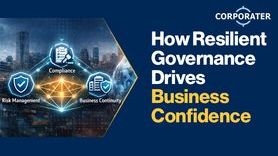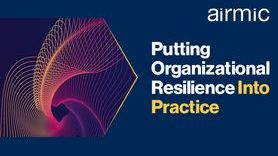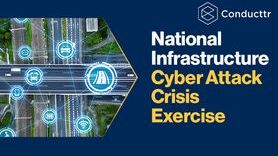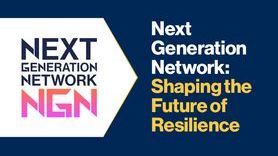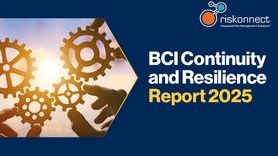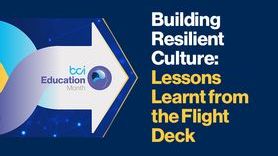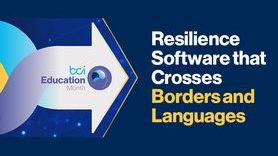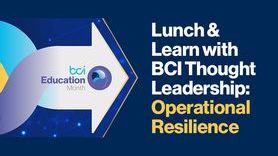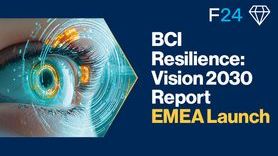Career Resilience: Insights from BCI WiR committee members
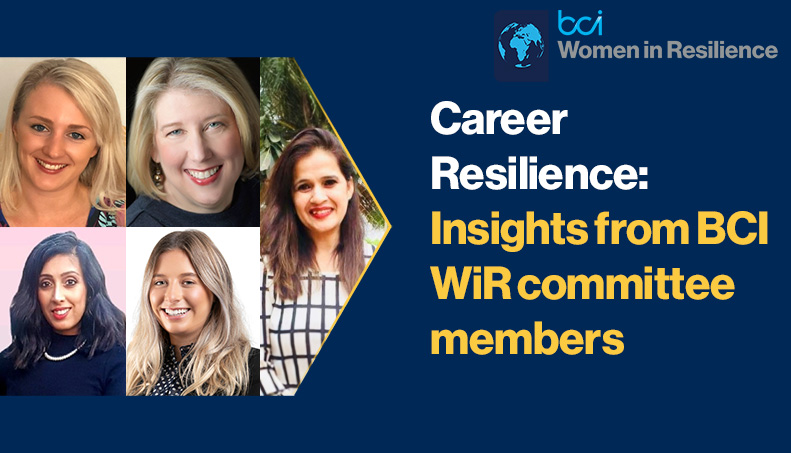
Interviewees: Rina Singh MBCI, Margaret Millettt HonFBCI, Bethany Warren AMBCI, Krysta Broughton-Munford CBCI
September, apart from all else, is remembered for BCI Education Month, which this year comes with a focus on ‘career resilience’. The term ‘resilience’ is an overall representation of adaptability and career resilience, by association, should refer to our ability to adapt to career changes. We all agree that we live in a world today that is disruptive, volatile, and uncertain, filled with constant changes and challenges. If we’re being honest, our lives, especially since the onset of COVID-19, haven’t been easy and almost all of us have felt a bit helpless, unprepared, or taken aback at the pace and intensity of global events.
In the risk landscape that we live in now, we may be forced to embrace ambiguity but we also have the power to upgrade our skills and get as many tools in our belt to deal with these situations, both personally and professionally. To progress in our careers or even to stay relevant in our current roles, it is imperative that we keep agile and perhaps adopt the new adage that the ‘only constant is continual learning’.
I asked some related questions to some of the brilliant managing committee for the BCI Women in Resilience (WiR) Special Interest Group and their responses and tips hold great insights that will help enhance the ‘career resilience’ of business continuity (BC) and resilience professionals.
Ratna Pawan: Career resilience — how would you define this term?
Rina Singh: Pivoting when required to thrive in a world full of disruptions. It is no different to personal and business resilience.
Margaret Millett: By learning to become more resilient you can bring new power, direction, and energy to your career. You can be more comfortable in an environment where nothing stays the same and the old may no longer work. When you gain resilience, you can create a more successful career path, and at the same time find greater enjoyment in the rest of your life.
Bethany Warren: I define this as our ability to take ownership of our careers through commitment to lifelong learning, training, and development. Being adaptable to the ever-changing needs of the environment and refining our skillset to meet these evolving needs and persevering in the face of challenges and setbacks.
Krysta Broughton-Munford: Career resilience is having a positive drive to nurture, build, and embed the concepts of adaptability, agility, and perseverance both in your professional and personal life. Career resilience doesn’t become established overnight, rather it is learned and enhanced over time. Importantly, it is something we can all achieve with the right tools, attention, energy, and focus.
Ratna Pawan: If you could give only one tip on career advancement to newcomers and aspiring professionals in the risk profession, what would it be?
Rina Singh: Network, network, network. Put yourself out there!
Margaret Millett: Get connected and develop a strong network of positive relationships. Do not wait until there is a crisis. Look for ways to support friends, colleagues, and even casual business acquaintances. Know they will be there to accept, support, and inspire you during challenging times in your career.
Bethany Warren: Embrace a growth mindset way of thinking by treating each day as a learning day and taking every opportunity that presents itself to you. It is much better to have a go at something and potentially fail than to never try and think ‘what if.’ If you do experience a challenge or a setback, learn from it and view it as a stepping stone that is helping you get to where you need to be. Adopting this mindset has helped me immensely in my career to date.
Krysta Broughton-Munford: Build strong, meaningful, and lasting professional relationships. Be mindful that having a multitude of transactional relationships will not necessarily allow you to navigate the best possible path for yourself. Instead, seek out a network of professionals who inspire, challenge, and disrupt your thinking and build relationships with them. It almost always pays off.
Ratna Pawan: When you look back on your professional journey, is there any one experience, incident, or decision (or even a mentor) that you think contributed the most to your advancement?
Rina Singh: Networking and putting myself out there when there was no platform. It significantly raised my profile, gave me confidence, and led to many opportunities for growth. For me, one of which is now being the leader for WiR.
Margaret Millett: Early in my career I was not sure how to connect the dots on having plans in place to deal with incidents. It then became clear to me when I had to support a fire at the Philadelphia office of my employer, a shooter in the high-rise San Francisco office building (before today’s security systems were implemented), and our London office being blown up by a bomb. These incidents were all managed with the use of email and mobile technology as we know them today!
Bethany Warren: Reflecting on my career, I do not believe there was just one experience, but in fact a series of experiences that contributed to my advancement. All of which involved multiple role models, industry professionals, and work colleagues that are now friends. These people provided me with countless opportunities, encouragement, support, sound guidance, and empowered me to be where I am today. I am incredibly grateful for this. Never underestimate the power and support of your network!
Krysta Broughton-Munford: Taking (and accepting) honest counsel from my mentors has played a huge part and had a significant, positive impact on my professional journey to date. Surrounding myself with professionals who have an authentic thirst to see me succeed has been undeniably important. Without them, I may never have made the decision to change career and break into the resilience industry.
Ratna Pawan: How do you visualize the future of BCM/resilience professionals?
Rina Singh: A securely integrated part of the business strategy. This means we will need to upskill ourselves in strategic thinking and use this to balance out the technical knowledge that is also required to navigate our ever-changing business landscape.
Margaret Millett: BC management (BCM) professionals need to always look forward to identify trends and ensure their plans stay updated and effective over time. The trends list may not encompass everything that we are likely to see, however, it provides a baseline of what should be taken into consideration. Being aware of these trends is vital but incorporating them into BC plans is a different skill in and of itself.
Bethany Warren: Each day we are navigating an ever-changing and uncertain environment with new risks and threats, which makes the future of BCM/resilience professionals a necessity in today’s society. With the introduction of data analytics, artificial intelligence, and automation, it brings both opportunities and risks, and as professionals, we need to ensure we keep up to date with these new advancements.
Krysta Broughton-Munford: The future of resilience professionals is ours to make, mold, and grow. We must learn from professionals who have obtained invaluable knowledge with rich experiences, and listen to those who bring fresh, dynamic, and progressive thinking in equal measure. Only then can we truly build resilience within our community of dedicated professionals.
Ratna Pawan: According to you, which is better? A ‘generalist’ with an understanding of various risk domains or a ‘specialist’ with expertise in any one risk domain?
Rina Singh: Both have a place and the optimal choice depends on your organization’s risk profile, size, and needs. An example could be that a senior role whose focus is on overall risk/resilience strategy would be better suited to those with a generalist understanding and a specialist role would focus on more complex risks to undertake a detailed review.
Margaret Millett: I believe being a “generalist” is better for a long-term career in the BCM profession. When you are reading a job description it will encompass multiple domains. If you want to become a chief resilience officer, you will need to have knowledge of many domains to run an effective programme at an organization.
Bethany Warren: Both generalists and specialists bring valuable skillsets, depending on the specific needs and goals of the organization. It is important to develop your niche and specialism that you are enthusiastic about and can be a subject matter expert in. However, to be a specialist, I do believe you require a broad understanding of other risk areas to enable you to have valuable risk-based conversations with other areas of the business.
Krysta Broughton-Munford: Generalists and specialists will always hold their own unique value and merit in the domains they work within and across. However, having moved into resilience from a related discipline, I shall always hold an admiration and respect for professionals who bring with them an array of multi-faceted experiences, and a more rounded and general knowledge from across the industry.
Start your journey towards career resilience if you haven’t already. Very soon it will not be a choice anymore!

